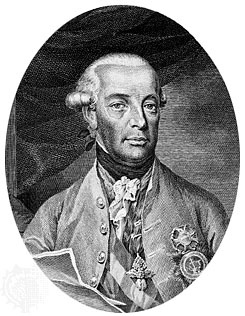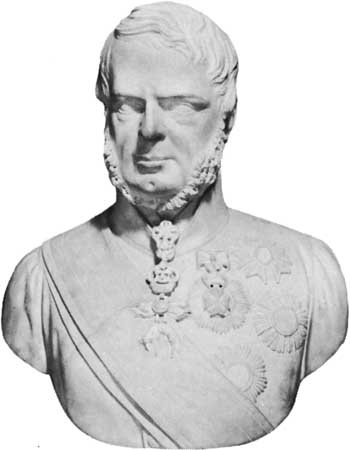Leopold II
Holy Roman emperor
born May 5, 1747, Vienna
died March 1, 1792, Vienna
 Holy Roman emperor from 1790 to 1792, one of the most capable of the 18th-century reformist rulers known as the “enlightened despots.”
Holy Roman emperor from 1790 to 1792, one of the most capable of the 18th-century reformist rulers known as the “enlightened despots.”The third son of the Habsburg Maria Theresa and the emperor Francis I, Leopold succeeded his father as duke of Tuscany when his eldest brother became emperor as Joseph II in 1765. Like Joseph, Leopold was influenced by the ideas of the Enlightenment and was determined to construct an efficient state apparatus at the expense of feudal interests. During his 25-year reign over the Grand Duchy of Tuscany, he rationalized his states' taxation and tariff systems and encouraged the development of representative institutions.
After Joseph II died in February 1790, Leopold was elected emperor (and also became king of Hungary and archduke of Austria). Although he dismantled some of the centralized state machinery that Joseph had set up in the Habsburg domains, he kept in force Joseph's decrees that emancipated the peasantry and granted increased religious liberty to non-Catholics. At first Leopold reacted cautiously to the explosive situation created in Europe by the French Revolution. In August 1791, however, he joined with the Prussians in issuing the Declaration of Pillnitz, appealing to the European sovereigns to use force to assure the maintenance of monarchical government in France. Austria and Prussia concluded a defensive alliance in February 1792, but Leopold died less than two months before France declared war on Austria.
grand duke of Tuscany
born Oct. 3, 1797, Florence
died Jan. 29, 1870, Rome
 last reigning grand duke of Tuscany (ruled 1824–59).
last reigning grand duke of Tuscany (ruled 1824–59).Succeeding his father, Ferdinand III, on June 18, 1824, Leopold continued liberal administrative, judicial, and educational reforms and improved the transportation system. After the election (1846) of the popular and democratic Pope Pius IX, whose reforms and policies unloosed liberal enthusiasm throughout Italy, Leopold became one of the first Italian rulers to grant a constitution for representative government (Feb. 17, 1848). Popular pressure forced him to send Tuscan troops to fight against the Austrians in Lombardy. As radical agitation grew, however, he left Tuscany (Jan. 30, 1849), stating that he could not agree to the planned constituent assembly, and on February 21 joined the pope at the fortified port of Gaeta south of Rome; Pius IX had fled the radical extremists in Rome.
After the Austrian victory over the Piedmontese at Novara (March 23), the Tuscan Assembly installed a dictator whose brief rule proved unsuccessful; the Assembly then invited Leopold to return (April 12). He accepted but secretly arranged for Austrian troops to march in first (May 25, 1849). Leopold himself did not return until July 28; the Austrians remained until 1855. Leopold prorogued the parliament in September 1850, finally revoked the constitution on May 5, 1852, and imprisoned the Tuscan revolutionaries.
Despite the end of Austrian occupation in 1855, Leopold's prestige remained low. He refused the popular demand to join the French and Sardinians in their war against Austria in 1859, and, in the face of mounting opposition, he quietly left Tuscany (April 27) to abdicate in favour of his son Ferdinand IV (July), who never reigned.
king of Belgium
French in full Léopold-Louis-Philippe-Marie-Victor, Dutch in full Leopold Lodewijk Filips Maria Victor
born April 9, 1835, Brussels, Belg.
died Dec. 17, 1909, Laeken
king of the Belgians from 1865 to 1909; he led the first European efforts to develop the Congo River basin, making possible the formation of the Congo Free State in 1885, annexed in 1908 as the Belgian Congo (now Congo 【Kinshasa】).
The eldest son of Leopold I, first king of the Belgians, and his second wife, Marie-Louise of Orléans, Leopold became duke of Brabant in 1846 and served in the Belgian Army. In 1853 he married Maria Henrietta, daughter of the Austrian archduke Joseph, palatine of Hungary, and became king of the Belgians on his father's death in December 1865. Although the domestic affairs of his reign were dominated by a growing conflict between the Liberal and Catholic parties over suffrage and education issues, Leopold II concentrated on developing the nation's defenses. Aware that Belgian neutrality, maintained during the Franco-German War (1870–71), was imperilled by the increasing strength of France and Germany, he persuaded Parliament in 1887 to finance the fortification of Liège and Namur. A military conscription bill, for which he had long argued, was passed shortly before his death.
Leopold had meanwhile become deeply involved in the Congo region, founding the Association Internationale du Congo (1876) to explore the area, with Henry (later Sir Henry) Morton Stanley (Stanley, Sir Henry Morton) as his main agent. In 1884–85 he defeated an Anglo-Portuguese attempt to conquer the Congo basin and gained recognition by the United States and the leading European powers as the sovereign of the État Indépendant du Congo (Congo Free State), an area 80 times the size of Belgium. The chief industry, wild rubber production, became especially lucrative after 1891, but in 1904 exposure of mistreatment of Congolese in the rubber industry marked the onset of the decline of Leopold's personal rule in the region. Great Britain, with U.S. aid, pressured Belgium to annex the Congo state to redress the “rubber atrocities”; the area became part of Belgium in November 1908. Since Leopold's only son had predeceased him, a nephew, Albert I, succeeded to the throne.
- Barone, Enrico
- Baron Ensor, James
- Barone Sonnino, Sidney
- Baroness Amos of Brondesbury Amos, Valerie Ann
- Baroness Burdett-Coutts, Angela Georgina Burdett-Coutts
- Baroness de Feuchères, Sophie Dawes
- Baroness Emmuska Orczy
- Baroness (Freifrau) von Ebner-Eschenbach, Marie
- Baroness Masham Of Otes Masham, Abigail
- Baroness Nairne, Carolina Nairne
- Baroness of Asheridge Lee, Jennie
- baronet
- Baronet Banks, Sir Joseph
- Baronet Brisbane, Sir Thomas Makdougall
- Baronet Burns, Sir George
- Baronet Carteret, Sir George
- Baronet Cartier, Sir George-Étienne
- Baronet Child, Sir John
- Baronet Corrigan, Sir Dominic John
- Baronet Davy, Sir Humphry
- Baronet Hadfield, Sir Robert Abbott
- Baronet Hardy, Sir Thomas Masterman
- Baronet Jameson, Sir Leander Starr
- Baronet Kneller, Sir Godfrey
- Baronet LaFontaine, Sir Louis-Hippolyte